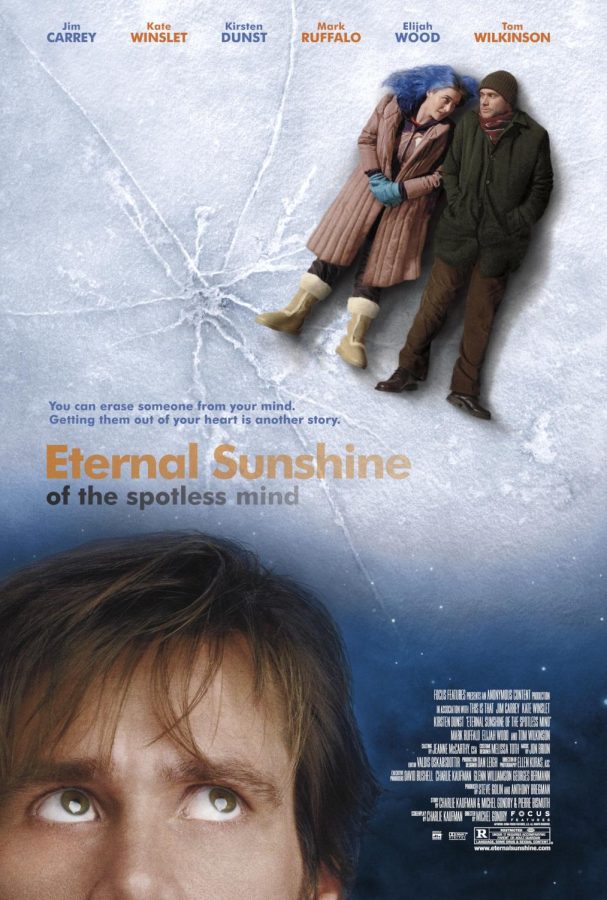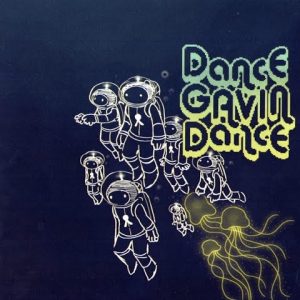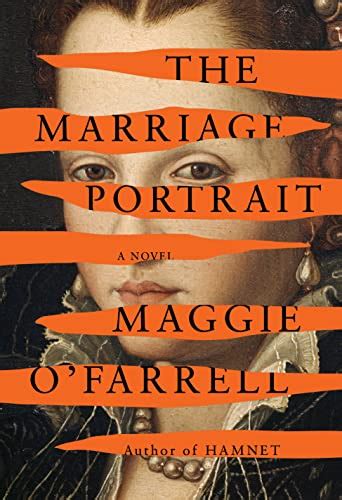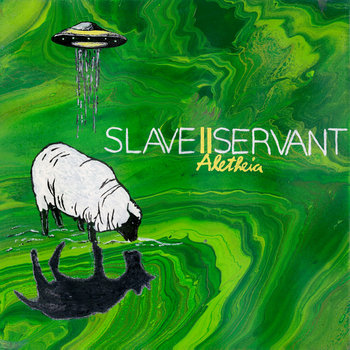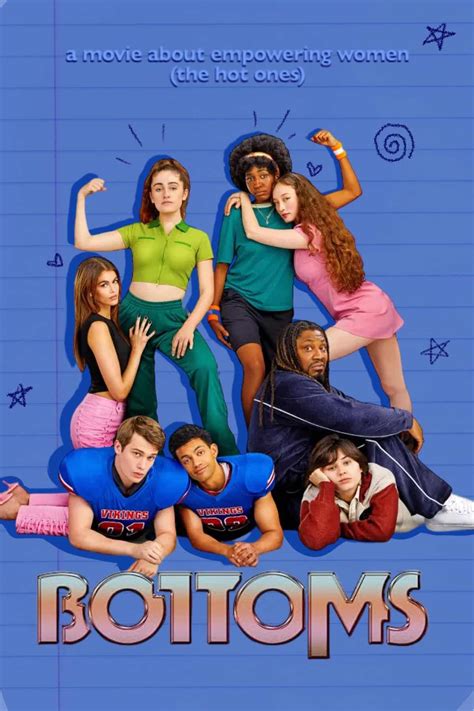“Eternal Sunshine of the Spotless Mind” Remains a Great and Conflicted Romance
“Eternal Sunshine’s” clever, pessimistic script is brought to life by detailed visuals, a couple great performances and a melancholy soundtrack.
May 1, 2023
Love is complex. This truth is something we must learn over the course of our lives. But, “Eternal Sunshine of the Spotless Mind” dedicates itself to revealing that truth to us, and through its superb acting, precise editing, melancholy soundtrack and visual flair creates a surprising and clever romance.
“Eternal Sunshine” is about Joel (Jim Carrey) and Clementine (Kate Winslet), two happen-stance passersby looking for love who find it in each other. After an unknown series of events, we discover Clementine had her memories of Joel erased. After he discovers this, Joel decides to have his memories erased as well. Centering on his memory loss, the audience is taken on a journey through Joel’s memories of Clementine. By the end of this escapade, we’ve met the workers at the memory-erasing agency, including its head, Dr. Mierzwiak or Howard (Tom Wilkinson), Stan the technician (Mark Ruffalo), Patrick the assistant (Elijah Wood) and Mary the receptionist (Kirsten Dunst).
The work of the movie’s writer, Charlie Kaufman, focuses on the mind and how it works, and in this case is pessimistic of the affection we feel for others. It’s a chaotic, tear-jerking and enraging trip through Joel’s memories of Clementine, with countless set pieces, cuts between reality and inventive gags.
One such scene is a blunt cut from Joel waiting for Clementine in his car to him crying, listening to Beck’s cover of The Korgis’ “Everybody’s Gotta Learn Sometime.” It was made for the soundtrack, only covering the loss of love, which better fits the scene where Joel realizes Clementine’s had every memory of him deleted.
“Theme” is a slow, fluctuating waltz that tells us, as in the film’s opening, Joel is a sad man.
“Phone Call,” a grainy, lo-fi melody that plays in reverse, has lush chords on top of it that are sorrowful, which is juxtaposed with the scene of Joel calling Clementine after they initially meet in the movie’s beginning.
In one scene, Mary continues: “To let people begin again. It’s beautiful. You look at a baby, and it’s so pure and so free and so clean. Adults are like this mess of sadness and phobias.”
There are subtler notes in the movie, such as the use of Beck’s cover in three different scenes. The first is when Joel’s crying after discovering Clementine’s erased him from her mind. The second is when Joel and Clementine get into a tiff after he says her talking as much as she does doesn’t mean she’s good at communicating. The third is when they are frolicking in the snow at Montauk together. These present vignettes of the overall arc, playing in reverse: first with the breakup, then with a fight, and finally with them enjoying each other.
Changes in the lighting convey the frantic feeling of Joel traversing his soon-to-be-removed memories of Clementine. In these scenes, it’s dynamic and moody, where they’re enwrapped by one another. Suddenly, this mood lighting changes to a flashlight that shines on the both of them as they’re escaping from the lost memory, like they’re being hunted.
These various situations beg the question of what love is. This isn’t answered in the movie, so much as it’s taken apart and left unanswered. At the tail-end of the film, when Clementine confides that their relationship won’t work, Joel responds, “OK,” and they both laugh. They laugh off the woe of their relationship, the idea that it was meant to be, and that their differences will end up splitting them apart.
Joel and Clementine’s performances were great, both having a wide range that matched each other in their scenes together. One, where they’re walking through a flea market, was a genuine couple’s fight where Joel suggests Clementine wouldn’t make a good parent and, sticking to what he says, continues to instigate with her, insisting that they’ll “talk later” about it.
On his own, Joel makes for a relatable, soft-hearted character who’s clearly losing something precious to him during his memory erasure. Among the various scenes conveying this is when he’s losing a memory of him and Clementine under a bed cover, telling sweet nothings and, as this memory’s being erased, he desperately claws his way out of the slowly dissipating memory with a panic stricken expression that only tells us what the voice over is already saying, “Please just leave me this one.”
Eternal Sunshine’s themes come together in an unconventional way, putting aside the expectations anyone might have going into a romance. It wowed me with its visual style and playfulness. The performances, especially by Jim Carrey and Kate Winslet, had me in tears. It’s available with Peacock Premium. 5/5

